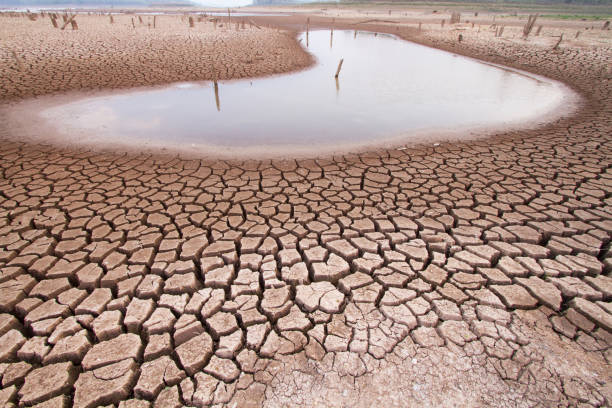CLIMATE CHANGE
Share

CLIMATE change refers to the long-term shifts in temperatures and weather patterns most probably due to natural causes like the sun’s activity or large volcanic eruptions.
However, since the 1800s human activities have been the main drivers of climate change. The largest contributors to climate change so far are fossil fuels such as coal, oil and gas accounting for over 75 percent of global greenhouse gas emissions and nearly 90 percent of all carbon-dioxide emissions.
People are engaging in activities that are contributing to climate change. For instance, they burn fossil fuels like coal, oil and gas which then generate greenhouse gas emissions that act like a blanket wrapped around the Earth, trapping the sun’s heat and raising temperatures.
The main greenhouse gases that are causing climate change include carbon-dioxide and methane.
These two gases emerge from the use of gasoline for driving a car or coal for heating a building. Also clearing land and cutting down trees can release carbon-dioxide. Agriculture, oil and gas operations are major sources of methane emissions.
Effects of climate change
The dangers of climate change include water scarcity leading to intense droughts, severe fires, rising sea levels, flooding, melting polar ice, catastrophic storms and declining biodiversity. It also has an impact on human health, as it is linked to increasing rates of respiratory and cardiovascular disease.
Additionally, it is putting pressure on food and water supplies, which could lead to mass migrations and conflicts over resources. The dilemma in climate change lies in that it is not only associated with warmer temperatures but it can also affect other aspects of the environment given that the Earth is a system and all of its components co-exists meaning what happens in one area can also affect what happens in other areas too.
Ways to limit climate change
1) Saving energy at home: With most electricity and heat powered by coal, gas and oil, human beings can help save energy at home by switching to LED light bulbs and energy efficient electrical appliances or even switching to solar energy. They can also wash their laundry with cold water or even hang things to dry instead of using dryers.
2) Considering mode of transport: Roads are congested with vehicles, most of them burning diesel or petrol and in order to reduce climate change people should consider walking or riding a bike instead of driving. For far away destinations, the use of trains or buses can be considered. Also, people travelling to far away places can limit their travelling especially when using aeroplanes because they burn large amount of fossil fuels.
3) Switching to electric vehicles: These vehicles help to reduce air pollution and cause significantly fewer greenhouse gas emissions than petrol or diesel-powered vehicles regardless of the fact that they run on electricity produced from fossil fuels.
4) Recycling, reusing, reducing and recovering: Most electronics, clothes and other items people buy cause carbon emissions at each point of production from the extraction of raw materials to manufacturing and transporting these goods to the market area, so it is much better to opt for recycled items, buy fewer things and recover what you can.







